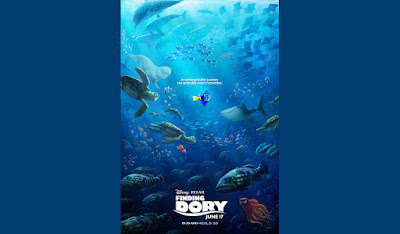(Source: Wikipedia)
The protagonist Jyn Erso is the daughter of Galen Erso, who is responsible for the design and construction of the Empire’s Death Star. Galen sends a message through a defected pilot that he has placed a hidden weakness in the weapon. When the Rebellion recruits Jyn for her help, she must convince them of her father’s good intentions and exploit the Death Star’s weakness. We know from the original trilogy that she and the other characters succeed but die in the attempt, since none of them greet Luke Skywalker in A New Hope. Although this could have stolen the tension, it instead creates a ticking time bomb for the characters to operate in.
I liked Jyn as a headlining female character (though not quite as much as Rey). She looks tough, she is tough, but her devotion to her father carries the story as she reveals a greater amount of hope than she initially had. Rebel officer Cassian Andor possesses an interesting moral nuance as a man who believes in the cause but who has done pretty ugly things to support that cause. Then there are just plain cool characters such as Chirrut Imwe, a blind warrior who taps into the Force to kick everyone’s ass and take names - though he isn’t himself a Jedi. His capabilities reminded me of Toph Beifong from Avatar: The Last Airbender. K-2SO, a former imperial android, was by far the sassiest character. He had the best lines. I didn’t think I would find a droid the most relatable character, but here we are.
Meanwhile, Saw Gerrera wasn’t used much despite his important relationship to Jyn. After her father was kidnapped, Gerrera rescued and raised Jyn until she was sixteen and he abandoned her to “protect” her - a fact that was skimmed over in a fast and awkward conversation. I guess you can only cover so much, but I would rather not be set up to believe a character is more significant than he is if he’s only going to fall away in the first act.
The movie quickly establishes that Galen Erso is an unwilling accomplice to the Empire’s Death Star, but I thought it missed an opportunity to amp up the moral grayness. One of Jyn’s childhood flashbacks hinted that Galen was once willingly working with the Empire. I thought the story could have explored his involvement more and make the audience wonder whether Jyn is right to automatically trust him. But that’s just a thought.
I also want to gush about the diversity of the cast. Almost all of them were people of color, which makes me wonder where they disappeared to in the original trilogy. Even better, Andor is played by Mexican actor Diego Luna. A Mexican in Star Wars! I’m so proud because it means I have a chance.
Rogue One offers a fun and fast-paced space adventure that mixes the appropriate amount of action and just enough fan service to make me squeal at the right moments. I hope that this film signals more quality Star Wars content in the future, from Episode VIII to the Han Solo spin-off to whatever else Disney churns out for us. It’s a good time for geeks to be alive.




















